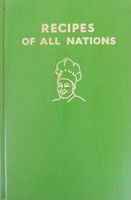Save 25% on ckbk Premium Membership with code FALLFLAVORS 🍁
Introduction
Published 1935
Germany has a highly distinctive cookery of her own, and, with the exception of the cooking in the big hotels and restaurants in Germany, the French have had little or no influence on national and traditional German cookery, as they have had in other European countries. The all-conquering French chef has never been allowed to cross the threshold of the German hausfrau’s kitchen—the bausfrau who is so often an admirable and painstaking cook, and who follows her own method in the preparation and cooking of the traditional and beloved dishes of the Fatherland. Some of her homely dishes are excellent, but the French chef, were he allowed to cross this sacred frontier, might criticise her somewhat “broad” method of cooking, and the mixture of certain ingredients which, according to the French palate, are discordant. But the palates of the different nations of Europe are much influenced by both racial and climatic factors, and the hereditary antagonism between Germany and France is certainly reflected in the widely differing tastes in food. The German has a predilection for heavy food; he is a big eater, but shares with the Frenchman the admirable gift of enjoying his food. Just as German “kultur” is of a more ponderous type, so is the German art of gastronomy, and a nation who gives us a Beethoven and a Wagner does not give us a Grétry or a Lully.
In this section
Part of
Advertisement
Advertisement


